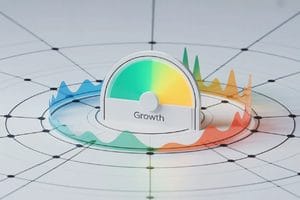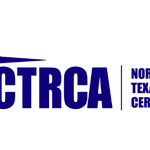TL;DR; Your ADHD brain is actually wired for crisis leadership success. The traits that challenge you during routine operations – rapid thinking, pattern recognition, comfort with chaos – become superpowers when everything hits the fan. The secret is understanding how your neurodivergent strengths show up under pressure and creating space for them to shine rather than fighting against your natural crisis response.
“Something happened last week that I’m still trying to understand,” David said during our coaching session. He was a CEO I’d been working with for eight months, someone who’d struggled with what he called his “scattered ADHD brain” during routine board meetings and strategic planning sessions.
“We had a massive crisis – servers went down in the middle of our biggest product launch, customers were furious, media was calling, and my board was in emergency session mode. Everyone expected me to fall apart under the pressure.”
“But you didn’t?” I asked.
“That’s just it – I felt more clear-headed than I had in months. It was like everything finally made sense. The noise in my brain turned into signal. I could see patterns my team was missing, and I knew exactly what needed to happen next. My CFO kept asking how I was staying so calm when she was barely holding it together.”
He paused, looking genuinely puzzled. “My team keeps telling me I was brilliant during the crisis, but honestly? It just felt like my brain was finally in the right environment. Like this is what it was designed for.”
As we explored what had happened during those seventy-two hours of crisis response, David described one of the most effective leadership performances I’d heard about in years. What fascinated me wasn’t just his success – it was how naturally his ADHD traits had translated into crisis leadership advantages. The restless energy he usually struggled to manage had become tireless focus. His tendency to see connections others missed had become innovative problem-solving. His comfort with uncertainty had become steady leadership when others felt paralyzed by ambiguity.
This isn’t an isolated story. In my experience working with ADHD executives, I’ve discovered something remarkable: the same neurodivergent traits that create challenges in traditional corporate environments often become extraordinary strengths when the pressure is on and the stakes are high.
What would be possible if you understood that your ADHD brain might actually be built for crisis leadership?
When Your Brain Finally Finds Its Element
“I’ve noticed something strange,” a client told me recently. “Everyone says I’m disorganized and scattered, but whenever there’s a real emergency at work, people come to me. Why is that?”
The answer lies in understanding how ADHD brains respond differently to crisis situations. Research shows that people with ADHD are remarkably calm in the middle of a maelstrom – that’s when they’re truly in their element. High-stress situations get the dopamine pumping in ways that routine operations simply don’t, which explains why adults with ADHD often excel as emergency responders, entrepreneurs, and yes, crisis leaders.
What’s happening neurologically is fascinating. Your ADHD brain, which struggles with the understimulation of routine tasks, suddenly gets the neurochemical environment it needs to function optimally. The external chaos finally matches your internal processing patterns, creating an alignment that feels almost effortless.
I invite you to consider your own experience. Think about the last time you faced a genuine crisis – professional or personal. How did you feel? How did you perform? Many of my ADHD executive clients are surprised when they realize they actually prefer high-pressure situations to calm, predictable environments.
One VP I work with put it perfectly: “My team thinks I’m magic during a crisis, but really, it’s just the first time my brain and my environment are finally working together instead of against each other.”
The ADHD Crisis Leadership Advantage
Let me share what I’ve discovered in my coaching practice about the specific strengths that emerge when ADHD leaders face crisis situations.
Your Pattern Recognition Becomes Strategic Vision
Sarah, a CFO I coach, called me during a major financial crisis her company was facing. “I keep seeing connections that my team is missing,” she said. “It’s like I can see how all these different problems are actually one big problem with multiple symptoms.”
This is your ADHD brain’s pattern recognition in action. What feels like scattered thinking during normal times becomes strategic insight when complexity increases. Your ability to see the big picture and connect seemingly unrelated elements transforms from a potential distraction into a critical leadership capability.
I’m curious – when have you found yourself seeing solutions or patterns that others missed? What if that wasn’t a lucky coincidence but a reliable strength you could develop and deploy intentionally?
Your Restless Energy Becomes Sustained Focus
“I can’t sit still during regular meetings,” another client confessed, “but during our crisis response last month, I worked eighteen-hour days and felt energized the entire time. How does that make sense?”
When crisis situations provide the external stimulation your brain craves, that restless energy transforms into sustained, purposeful focus. The hyperfocus that sometimes feels uncontrollable during routine tasks becomes a strategic advantage when intense, sustained attention is exactly what’s needed.
What’s beautiful about this transformation is that you’re not fighting against your nature – you’re finally working with it. The productivity strategies that feel forced during normal operations become natural and effortless when the external environment matches your internal energy.
Your Comfort with Chaos Becomes Organizational Strength
Marcus, a CEO I’ve worked with for two years, laughed when he told me about his board’s reaction during a recent crisis. “They kept asking how I was staying so calm when everything was falling apart. I told them, ‘This isn’t chaos to me – this is Tuesday.'”
Living with ADHD means you’ve developed comfort with uncertainty, rapid changes, and multiple competing priorities. What feels overwhelming to neurotypical leaders often feels familiar to you. This isn’t because you’re more stressed – it’s because you’re more adapted.
When we create space for this natural adaptability instead of trying to force yourself into rigid crisis management protocols, something remarkable happens. Your ability to remain flexible and responsive becomes the steady center around which others can organize their own crisis response.
Your Quick Decision-Making Becomes Strategic Agility
“I made more good decisions in three days of crisis than I usually make in three months of regular operations,” one client told me. “And I made them faster, with less information, and felt more confident about each one.”
Your ADHD brain’s tendency toward rapid decision-making, which sometimes gets you in trouble during routine situations, becomes invaluable when speed matters more than perfection. Crisis situations require what you naturally do well: quick assessment, pattern recognition, and confident action based on incomplete information.
The courage to be vulnerable here is admitting that you might actually be better at crisis leadership than traditional leadership. What if that’s not a limitation but a specialization worth developing?
Are You a "Crisis Champion" Leader?
If you come alive when everything’s on fire, you might be wired as a Crisis Champion. Take our free assessment to discover your ADHD leadership profile and learn why pressure brings out your best.
When Your Strengths Need Strategic Support
Now, let’s talk about something important: ADHD crisis leadership isn’t perfect just because it’s natural. In my experience working with leaders, the same traits that become advantages can also create vulnerabilities if we’re not intentional about managing them.
The Communication Challenge
James, a brilliant crisis leader, called me after successfully navigating a major operational crisis. “We solved everything,” he said, “but I think I might have damaged some relationships along the way. My communication style during the crisis was… intense.”
Your rapid thinking and direct communication style, while effective for crisis resolution, can sometimes feel overwhelming to stakeholders who are already stressed. What I’ve discovered is that crisis communication requires a different approach than crisis problem-solving.
I invite you to consider: How might you maintain your natural decisiveness while ensuring your communication builds confidence rather than creating additional anxiety? What would be possible if you could leverage your crisis strengths while attending to the relationship impact of your leadership style?
The Attention Distribution Dilemma
“I was hyperfocused on solving the technical crisis,” another client shared, “but I completely missed the fact that my team was burning out. How do I balance deep focus with broad awareness?”
Your hyperfocus capability is invaluable during crises, but it can also create blind spots. The challenge isn’t eliminating hyperfocus – it’s learning to deploy it strategically while maintaining enough situational awareness to lead comprehensively.
What’s worked with my clients is establishing what I call “focus cycling” – structured periods of deep attention alternated with broader scanning. This approach lets you leverage your natural focus intensity while ensuring you maintain the awareness required for complete leadership.
The Energy Sustainability Question
Crisis leadership often requires sustained high performance over extended periods. Your ADHD brain may thrive on crisis stimulation initially, but what happens when the crisis extends over weeks or months?
“I was brilliant for the first week,” one CEO told me, “but by week three, I crashed hard. My team needed me to be steady, but I felt like I was running on empty.”
Understanding your energy patterns and building recovery strategies into extended crisis situations isn’t a luxury – it’s a leadership necessity. Your work-life integration approaches become even more important when crisis demands are high and sustained.
Building Your Crisis Leadership Capabilities
The question isn’t whether you can be an effective crisis leader with ADHD – my coaching experience suggests you probably already are. The question is whether you can develop these natural capabilities intentionally and deploy them strategically.
Preparing Your Natural Response System
What if instead of trying to manage your ADHD traits during crises, you prepared to amplify them? This starts with understanding your personal crisis response patterns and creating environmental conditions that support rather than fight your neurodivergent strengths.
One client created what she calls her “crisis command setup” – a physical and digital environment designed to work with her ADHD brain during high-pressure situations. Multiple monitors for information processing, standing desk options for restless energy, and communication protocols that match her rapid thinking style.
I’m curious about your own patterns. When you think about past crisis situations where you performed well, what environmental factors supported your success? What would be possible if you intentionally designed crisis response approaches around your natural strengths rather than traditional protocols?
Developing Your Crisis Communication Style
Your natural directness and energy can be incredible assets during crisis communication, but they need to be channeled strategically. What I’ve learned from working with ADHD executives is that crisis communication works best when it’s both authentic to your style and adapted to your audience’s needs.
“I learned to lead with reassurance before diving into solutions,” one client shared. “My natural tendency is to jump straight to problem-solving, but I discovered that people need to know I’m calm and confident before they can hear my rapid-fire action plans.”
What would it look like to develop communication approaches that leverage your authentic energy and thinking speed while ensuring your messages build confidence and clarity for your stakeholders?
Creating Crisis-Ready Support Systems
Effective crisis leadership rarely happens in isolation. Building teams that complement your ADHD strengths while providing support in areas where you need it multiplies your crisis leadership impact.
Think about the people who bring out your best crisis leadership. What qualities do they have? How do they communicate with you during high-pressure situations? How do they help you maintain both focus and perspective?
One CEO I work with assembled what he calls his “crisis amplification team” – people who understand his ADHD strengths and can help him deploy them effectively while managing the details and follow-through that don’t align with his natural patterns.
The Deeper Question About Leadership Identity
Here’s something I’ve noticed in my coaching practice: many ADHD executives struggle with impostor syndrome specifically because they know they perform differently under pressure than during routine operations. They wonder if their crisis leadership success is “real” leadership or just a lucky alignment of circumstances.
What I’ve discovered through working with leaders is that crisis leadership might actually be one of the purest forms of leadership there is. When everything is uncertain, when traditional approaches aren’t working, when quick thinking and creative solutions are essential – that’s when leadership matters most.
The coaching approach I take with ADHD executives focuses on helping them recognize that their neurodivergent traits aren’t obstacles to overcome but capabilities to develop. Your crisis leadership strengths aren’t accidents – they’re expressions of how your brain naturally processes challenge and opportunity.
I invite you to consider: What if your ADHD traits aren’t making you a different kind of leader, but exactly the kind of leader our rapidly changing world needs?
Recognizing Your Crisis Leadership Readiness
Let’s explore where you are in developing your crisis leadership capabilities. This isn’t about whether you’re ready – in my experience, ADHD leaders often discover they’re more ready than they think. It’s about understanding your current strengths and identifying areas where additional support might amplify your effectiveness.
Understanding Your Crisis Response Patterns
Think about the last few high-pressure situations you’ve faced. How did your thinking change? How did your energy shift? What decisions came easily that might have felt difficult in calmer circumstances?
Many of my clients are surprised when they realize they already have extensive crisis leadership experience – they just haven’t recognized it as such. The ability to handle unexpected challenges, adapt quickly to changing circumstances, and generate creative solutions under pressure are crisis leadership skills, whether they’ve been applied in formal leadership roles or not.
Identifying Your Natural Crisis Strengths
What aspects of crisis situations energize rather than drain you? Do you find clarity in complexity? Does urgency help you focus? Are you comfortable making decisions with incomplete information?
One client realized that what others saw as her “inability to sit still” during meetings was actually her brain’s way of processing multiple information streams simultaneously – a skill that became invaluable during crisis situations requiring rapid assessment of complex, changing circumstances.
Recognizing Areas for Development
Where do you feel less confident during high-pressure situations? Is it communication? Energy management? Attention distribution? Understanding these patterns helps you prepare more effective support systems rather than trying to eliminate traits that might actually be strengths in different contexts.
The goal isn’t to become a different kind of leader – it’s to become more intentional about leveraging the leader you naturally are when the situation calls for it.
What’s Possible When You Lead from Your Strengths
Six months after that 2 AM crisis call, I had a follow-up conversation with the CEO I mentioned earlier. His company had not only survived their crisis but had emerged stronger, with new systems and capabilities they’d developed through the experience.
“The crisis taught me something important,” he said. “I spent years trying to be a different kind of leader, trying to manage my ADHD traits so I could lead ‘normally.’ But what if normal isn’t what’s needed?”
He’d built his leadership approach around his natural crisis capabilities while creating support systems for areas that didn’t align with his strengths. His board, initially skeptical of his unconventional style, now specifically sought his input during challenging periods because they’d seen what happened when he operated from his authentic strengths.
This is what becomes possible when we stop trying to fix our ADHD traits and start developing them strategically. Crisis leadership becomes less about managing your neurodivergent characteristics and more about deploying them intentionally.
In my coaching practice, I’ve seen ADHD executives transform not just their crisis leadership but their entire leadership identity when they understand that their brains might actually be designed for exactly the kind of adaptive, creative, rapid-response leadership our world increasingly needs.
What would be possible if you approached your next crisis not as a test of your ability to lead like everyone else, but as an opportunity to demonstrate the unique value your ADHD brain brings to leadership challenges?
The transformation happens when we create space for your natural crisis capabilities to emerge rather than forcing yourself into conventional leadership models that don’t match your neurological strengths. Your role isn’t to become a different kind of leader – it’s to become the most effective version of the leader you naturally are when pressure reveals your true capabilities.
Understanding your complete leadership potential includes recognizing that crisis situations might be where your most important leadership contributions emerge, not in spite of your ADHD traits, but because of them.
Frequently Asked Questions
How does ADHD affect stress response and performance under pressure?
In my coaching experience, ADHD leaders often discover that high-pressure situations actually enhance their performance rather than undermining it. Your brain’s natural arousal patterns align better with crisis demands than routine operations. What I’ve observed is that the external stimulation of crisis situations provides the neurochemical environment your ADHD brain needs for optimal focus and decision-making. Many clients tell me they feel clearer and more confident during crises than during calm periods – and that’s not coincidence, it’s neurology.
What specific ADHD traits become advantages during crisis situations?
The traits that create challenges in routine settings often become superpowers under pressure. Your pattern recognition helps you see connections others miss. Your comfort with chaos keeps you steady when others feel overwhelmed. Your rapid decision-making becomes strategic agility when speed matters more than perfection. I’ve watched clients discover that their restless energy transforms into sustained focus during crises, and their natural tendency toward creative problem-solving generates breakthrough solutions when conventional approaches fail.
How can ADHD executives prepare for crisis leadership roles?
Preparation starts with understanding your natural crisis response patterns rather than trying to force yourself into conventional crisis management models. I work with clients to identify their crisis strengths, develop support systems that complement rather than compete with their ADHD traits, and create environmental conditions that amplify their natural capabilities. The goal isn’t to manage your ADHD during crises – it’s to strategically deploy your neurodivergent strengths when they’re most valuable.
What are the potential downsides of ADHD during crises and how can they be managed?
The same intensity that makes you effective during crises can sometimes overwhelm stakeholders who need steadier communication. Hyperfocus, while valuable, can create blind spots if you’re not intentional about maintaining broader awareness. Energy sustainability becomes important during extended crises when your natural high-intensity response needs to be sustained over time. What I’ve found works is developing communication strategies that channel your energy appropriately, attention management approaches that balance focus with awareness, and recovery systems that prevent the crashes that can follow intense crisis periods.
Ready to discover how your ADHD strengths can transform your crisis leadership? The executives I work with often discover that their biggest leadership breakthroughs happen when they stop trying to manage their neurodivergent traits and start strategically deploying them. I invite you to explore how coaching can help you understand and leverage your natural crisis capabilities while building the support systems that amplify your effectiveness when pressure mounts.
Schedule a discovery conversation to explore how your ADHD brain can become your greatest crisis leadership asset.
Want a Thought Partner?
You’ve read the strategies. You understand the concepts. But sometimes what you need isn’t another framework – it’s a conversation with someone who’s coached ADHD executives through exactly what you’re facing.
Cherie offers complimentary 30-minute consultations for ADHD leaders ready to stop managing around their brain and start leveraging it. No pitch. No obligation. Just a focused conversation about your situation.
About the Authors
Cherie Silas, MCC
She has over 20 years of experience as a corporate leader and uses that background to partner with business executives and their leadership teams to identify and solve their most challenging people, process, and business problems in measurable ways.















